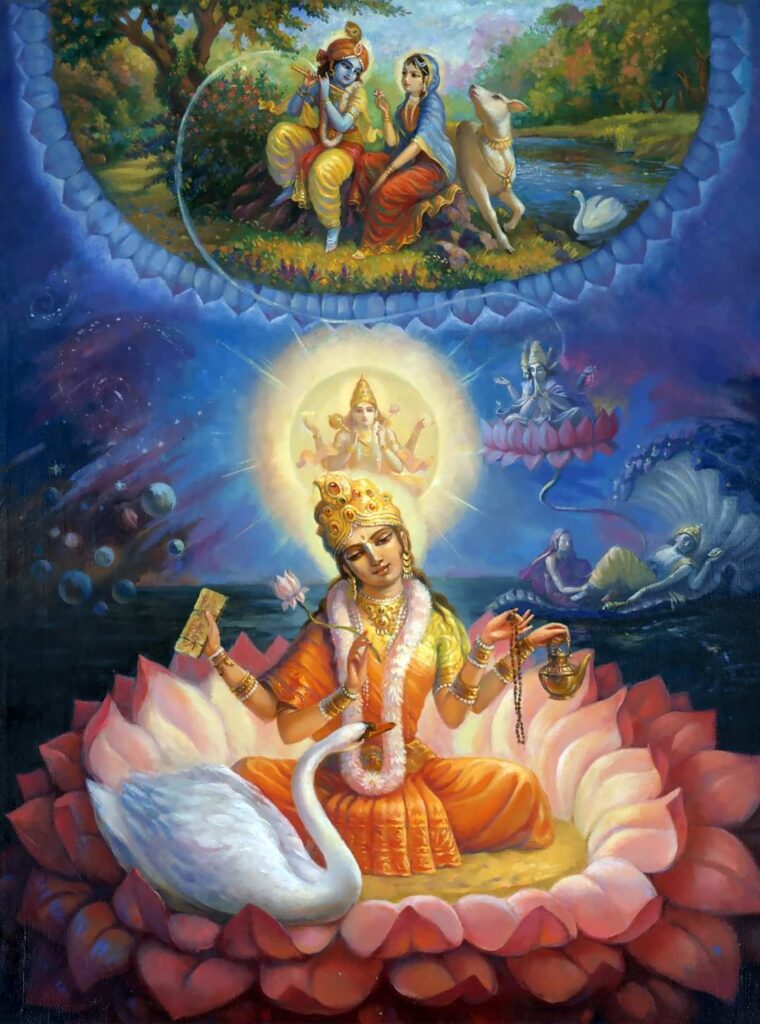In this world, we tend to rely on our intelligence to solve problems and acquire knowledge. One could argue that the best method for understanding anything, including the Absolute truth, is the process of logical examination.
To this, Vyasadeva answers (Brahma Sutras, 1.1.3): śāstra-yonitvāt. The speculations of the logicians can’t teach us about the Supreme Personality of Godhead, He may only be known by the revelation of the Vedic scriptures.

It’s not possible to understand the Supreme Personality of Godhead by just logic and speculation. All conditioned souls share four defects, which are having imperfect senses and intelligence, being propense to make mistakes, cheating others, and being illusioned.
We obtain imperfect information by using our imperfect senses, which are further processed using our imperfect intelligence. Because we tend to be illusioned, we often process information under a completely incorrect framework, which increases the opportunities for mistakes. Not only that, but we may also be cheated by others who want to take advantage of us, or we may cheat ourselves by finding excuses to believe whatever we want to believe. Due to all these factors, it’s impossible to reach perfect knowledge through mere logic and speculation. Perfect knowledge has to come from outside the material universe, from the transcendental world, which brings us to the Vedic scriptures.
Srila Baladeva Vidyabhusana mentions that the word “not” should be understood to be present at the beginning of this sutra, even though it is not directly expressed. With this, the full meaning of the sutra is “He can’t be known by reasoning, He may only be known through the sastras.” Two ideas are present, one negative (he can’t be understood by logic) and one positive (He can be understood through the sastras). Just like the cause of the birth of a child is the pregnant mother, the cause of understanding the Lord is the Vedic literature, as indicated by the word “yonitvat”.
Amongst the different books that comprise the Vedic literature, the Upanisads directly describe the Supreme Personality of Godhead. It is said that “aupanisadam purusam” (the Supreme Person is understood through the revelation of the Upanisads). The Vedanta Sutra brings the conclusions of the Upanisads, and the Srimad Bhagavatam is the natural commentary to the Vedanta Sutra. Therefore, if one can study and understand these two books, or if one can just study and understand the Srimad Bhagavatam, one will understand the conclusions of all Upanisads.
Logic and inference also have their role in understanding the Absolute Truth, but not as a separate method. We should use our intelligence to try to understand the revelation of the sastras, and not independently. When the Brhad-Aranyaka Upanisad mentions that the Absolute Truth should be understood by logic, it simply refers to this process.
This is corroborated in the Kurma Puraṇa:
purvapara-virodhena/ ko ‘rtho ‘trabhimato bhavet
ity adyam uhanam tarkah/ suska-tarkam vivarjayet
“Logic is properly employed to resolve apparent contradictions in the texts of the Vedas. Resolving all contradictions with previous and later statements as well as between primary and secondary meanings is correct argumentation. Dry logic, without reference to scriptural revelation, should be abandoned.”
Often, there are conflicts between the literal meaning of a text and its deeper meaning. When this happens, reasoning should be employed to solve these contradictions and find the correct interpretation, through the filter of the conclusions of past acaryas.
For example, different passages of the scriptures define the jiva as “nitya-baddha” (eternally conditioned), but if this is taken literally, it conflicts with the idea that the souls are part of the spiritual potency of the Lord, and thus originate from outside of the material creation. Prabhupada solves this contradiction by arguing that “eternally” in this case just means that it is so far in the past that it can’t be traced. The soul is thus “eternally” conditioned because it is for so long that it can’t be calculated, not in the literal sense of the term. “Eternally” is also connected with the influence of material time, which doesn’t have a beginning. Thus, once the soul finds himself inside the material creation, it appears he has beem always there, although, in a higher sense, the soul is part of the spirtual nature and is just a visitor here.
This verse from the Kurma Purana emphasizes thus that we should avoid dry-reasoning (suska-tarkam), avoiding rigid, dry interpretations of the texts based on literal interpretation, and should instead consider the broader context, taking into consideration the previous and subsequent passages, as well as the broader conclusions of the text, using thoughtful and nuanced reasoning (tarka) to understand the various layers of meaning and the general purpose of the text.
